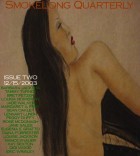During half term, I was watching David in the Legoland shop. He gathered up little blocks and cubes into his Lego beaker, sandy hair sticking up, his almost buck teeth flashing a grin of ten-year-old joy. The vision was an epiphany. This was as good as things could get for David. Safe—surrounded by pleasure unimaginable to adults—he was happier than he would ever be again.
I thought about the years Pete and I have spent together for David’s sake. I thought about all the years ahead we’ll spend together when he’s left us for his adult life. We’ll be miserable and he’ll never be happier than he is now.
That decided me. I told David he could spend twenty pounds on Legos and saw his soft eyes gleam with delight. It wouldn’t matter that I’d broken the budget. We wouldn’t be here when the bill came in.
When we got home I gave him a few hours to play with his Legos. I could hear his constant tuneless humming as he moved the little figures around to represent the drama unfolding in his head. I made lunch and let him eat on the floor, within his tiny Legoworld. That was also forbidden. Pete likes him to eat at the table.
When he’d eaten, I offered him a jelly drink. My mum used to make them for me when I was ill. It’s simply liquid jelly, that you drink it warm, before it sets. For the first time, I wondered what kind of family I came from, if my mother’s idea of an invalid treat was to feed them something as simple and uncaring as liquid jelly. You don’t even have to think enough ahead to let it set. David loves it though, as I did at his age.
I wonder if Mum would have liked some jelly drinks when she got ill. It’s hard to say; the Alzheimer’s removed so much of her personality that her likes and dislikes were eroded too.
Before I gave David the mug of warm red liquid, I handed him the diamorphine suppository and told him what to do with it. He giggled and then went to the toilet and did as I’d told him. He’s very obedient. That would have caused him problems in later life. We’ve taught him to do as he’s told, and yet those who follow the rules-–like me—seem to be destined only for bleakness and misery.
Mum had kidney stones for years before she died. The pain used to make her yell and scream. I still have a box of her medications – waste not, want not. The diamorphine packet said that it could suppress respiration as well as removing pain and causing drowsiness. It didn’t make Mum drowsy; nothing did.
With the jelly drink I gave David two diazepam. They aren’t Mum’s, they’re mine. I’ve been taking them since she moved in with us. When she went into hospital I carried on taking them, there didn’t seem to be any reason to stop.
He fell asleep quickly, onionskin eyelids fluttering over eyes whose last vision had been a Legos paradise. I carried him upstairs; he was heavier than I’d imagined he could be; how much he had grown recently! I put him in his own bed, with a hot water bottle, and waited until he settled – eyelids calm, soft lips gently parted over a mixture of baby and adult teeth. Then I smothered him with the pillow from the spare room.
I’ve given myself the same ‘treatment’. I have Mum’s shoebox of tablets on the bed beside me, and as I sip my jelly drink I’m swallowing one tablet at a time.
I know I mustn’t risk being sick. So I take it gently, allowing the thick sweet liquid to ease capsules and tablets down my throat. I trust the jelly to cushion my digestion against the corrosive effects of the pills. When I feel properly drowsy I shall lie down and place the thick sofa cushion over my face. With luck I will sleep before I suffocate.
Why? Why not. David has been my reason for living. Now I see that his life had reached its peak. From today, his happiness would all have been behind him, only disappointment and pain ahead. I’ve saved him from that. I wish my mother had done the same for me.


 The SmokeLong Grand Micro Contest (The Mikey) is now an annual competition celebrating and compensating the best micro fiction and nonfiction online.
The SmokeLong Grand Micro Contest (The Mikey) is now an annual competition celebrating and compensating the best micro fiction and nonfiction online.